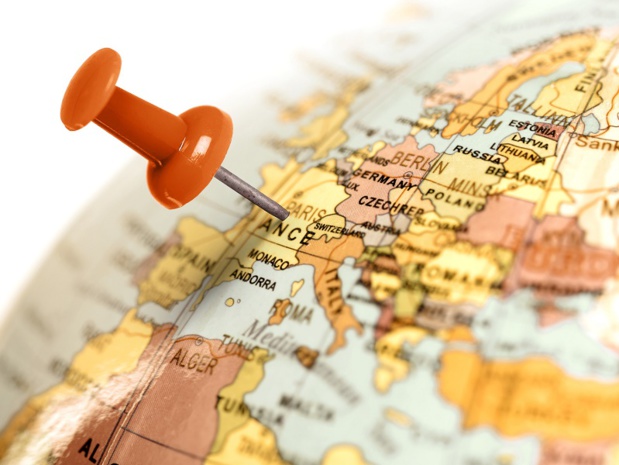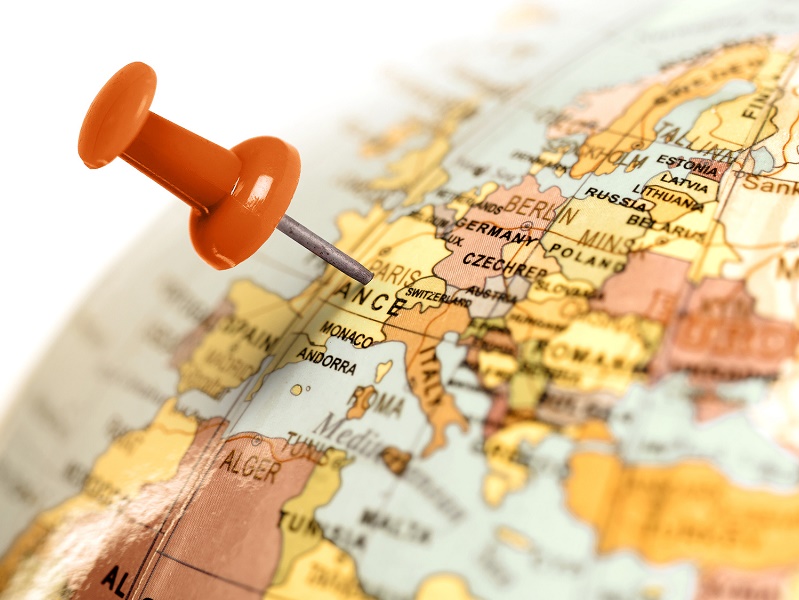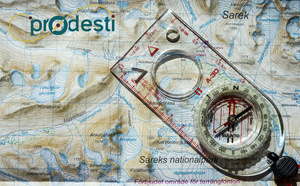
France must pursue its efforts to remain the “queen of global tourism” - Photo : Zerophoto-Fotolia.com
The title of the conference scheduled at the IFTM-Top Resa Forum on Thursday September 22, 2016 was perplexing: “France: queen of global tourism?”
Is it serious? Ironic? Provocative?
It is obvious that France remains one of the major tourism destinations on a world-scale, more in the number of international arrivals than in revenues.
But in front of the dynamism of some of its competitors, both historical and new, today its status seems largely contested.
While France may still be the queen of global tourism, it must be cautious because many destinations are coveting its throne.
Particularly since “unfortunately, the image of France abroad is mixed. Yet, it has many advantages. So many, that sometimes it doesn’t even realize it,” observed Albena Gadjaneva, new director of the Cannes Tourism Office and mediator of the conference.
Is it serious? Ironic? Provocative?
It is obvious that France remains one of the major tourism destinations on a world-scale, more in the number of international arrivals than in revenues.
But in front of the dynamism of some of its competitors, both historical and new, today its status seems largely contested.
While France may still be the queen of global tourism, it must be cautious because many destinations are coveting its throne.
Particularly since “unfortunately, the image of France abroad is mixed. Yet, it has many advantages. So many, that sometimes it doesn’t even realize it,” observed Albena Gadjaneva, new director of the Cannes Tourism Office and mediator of the conference.
Governance and mobility
Autres articles
-
 Vacances de fin d’année : entre affluence et stabilité
Vacances de fin d’année : entre affluence et stabilité
-
 Infographie 2025 - L'évolution de la fréquentation des hébergements touristiques en coup d'œil
Infographie 2025 - L'évolution de la fréquentation des hébergements touristiques en coup d'œil
-
 Comment vendre la destination France ?
Comment vendre la destination France ?
-
 City breaks : les Français de plus en plus adeptes des courts séjours urbains
City breaks : les Français de plus en plus adeptes des courts séjours urbains
-
 Trains touristiques, une filière dynamique mais fragile
Trains touristiques, une filière dynamique mais fragile
Meaning that in this context and with the current short-term difficulties tied to the economy and issues pertaining to safety, what challenges should France address to remain “the queen of global tourism?”
The challenges in question “are the same as in most developed countries,” warns Alain Dupeyras, Manager of the Tourism Committee of the OECD (Organisation for Economic Co-operation and Development).
He listed 4 major challenges that French incoming tourism must face.
The first concerns the governance of the sector that is “very dispersed.” According to Alain Dupeyras, it is essential to “develop an integrated vision of tourism, especially one that is interdepartmental, which is never simple.”
Specifically, he urges for a long-term strategy that takes into account the new forms of consumerism and distribution. And one where “the private and public both have a large role to play.”
The second challenge for France: mobility. It is necessary to facilitate visa issuance policies and reinforce both national and international intermodal passenger transportation. Since the current trend is that of door-to-door service.
The challenges in question “are the same as in most developed countries,” warns Alain Dupeyras, Manager of the Tourism Committee of the OECD (Organisation for Economic Co-operation and Development).
He listed 4 major challenges that French incoming tourism must face.
The first concerns the governance of the sector that is “very dispersed.” According to Alain Dupeyras, it is essential to “develop an integrated vision of tourism, especially one that is interdepartmental, which is never simple.”
Specifically, he urges for a long-term strategy that takes into account the new forms of consumerism and distribution. And one where “the private and public both have a large role to play.”
The second challenge for France: mobility. It is necessary to facilitate visa issuance policies and reinforce both national and international intermodal passenger transportation. Since the current trend is that of door-to-door service.
Jobs, training, and innovation
France must also better highlight its jobs and the qualifications of employees in the tourism sector.
On this topic, “the OECD is thoroughly thinking about how to develop careers and the image of jobs. But also about training in tourism,” states the manager of the OECD tourism committee.
This is an essential question because “in general, in tourism, jobs have less added value than in other sectors,” he notes.
As for the 4th challenge, he raised the topic of innovation. But not only technological, “also green innovation with the sustainability of companies for instance, and creativity with cuisine in France, among others,” explains Alain Dupeyras.
He believes that “the government must reinforce its support of innovation.” Tourism needs it to launch new equipments, bring old equipments to the current norms and improve the quality of its services.
“Unfortunately, on this point, tourism is not often considered like a sector of the future,” laments the OECD manager.
The presidential election, with the take-off of its campaign, may be the opportunity to shake things up.
Les défis de la France pour rester la "reine du tourisme mondial"
On this topic, “the OECD is thoroughly thinking about how to develop careers and the image of jobs. But also about training in tourism,” states the manager of the OECD tourism committee.
This is an essential question because “in general, in tourism, jobs have less added value than in other sectors,” he notes.
As for the 4th challenge, he raised the topic of innovation. But not only technological, “also green innovation with the sustainability of companies for instance, and creativity with cuisine in France, among others,” explains Alain Dupeyras.
He believes that “the government must reinforce its support of innovation.” Tourism needs it to launch new equipments, bring old equipments to the current norms and improve the quality of its services.
“Unfortunately, on this point, tourism is not often considered like a sector of the future,” laments the OECD manager.
The presidential election, with the take-off of its campaign, may be the opportunity to shake things up.
Les défis de la France pour rester la "reine du tourisme mondial"






























![Les musées ont-ils un avenir et lequel ? [ABO] Les musées ont-ils un avenir et lequel ? [ABO]](https://www.tourmag.com/photo/art/large_16_9/93778464-65484235.jpg?v=1768841214)















